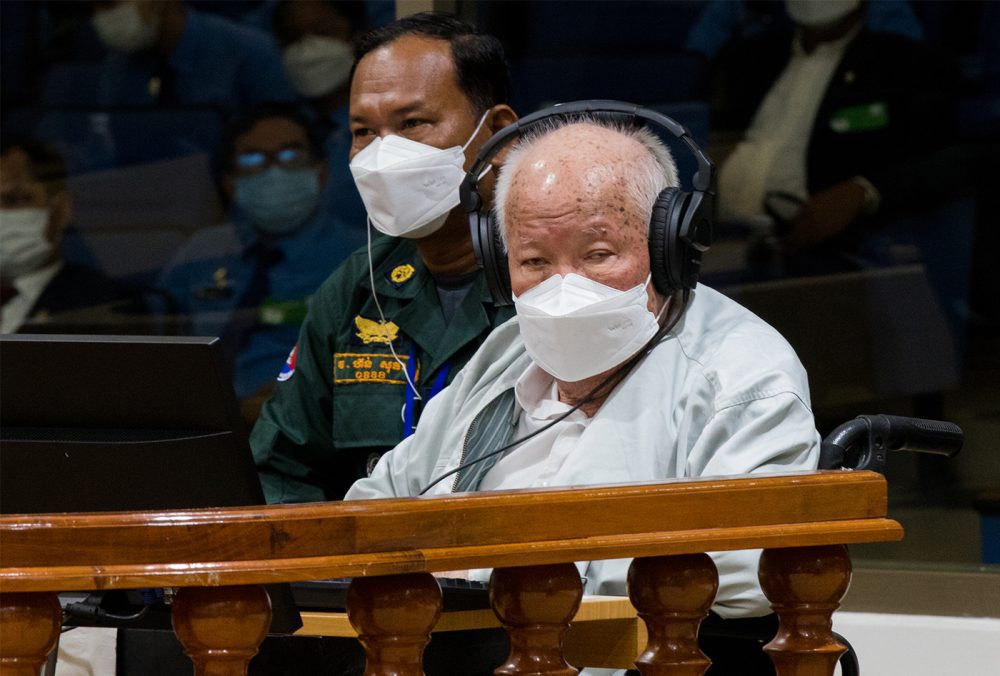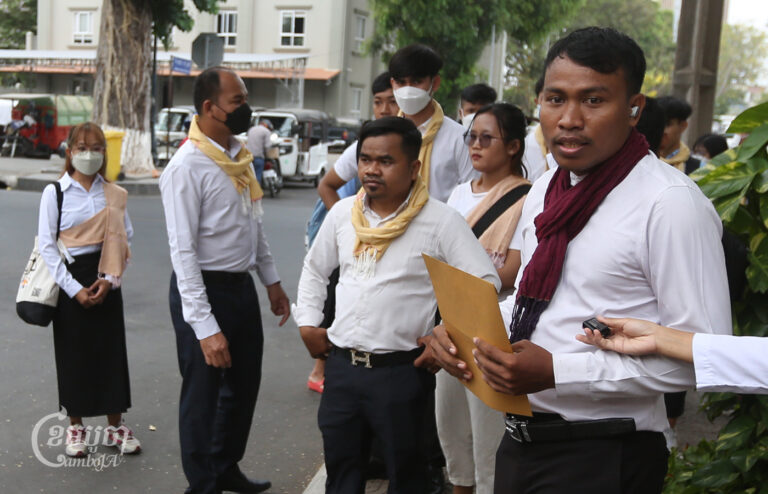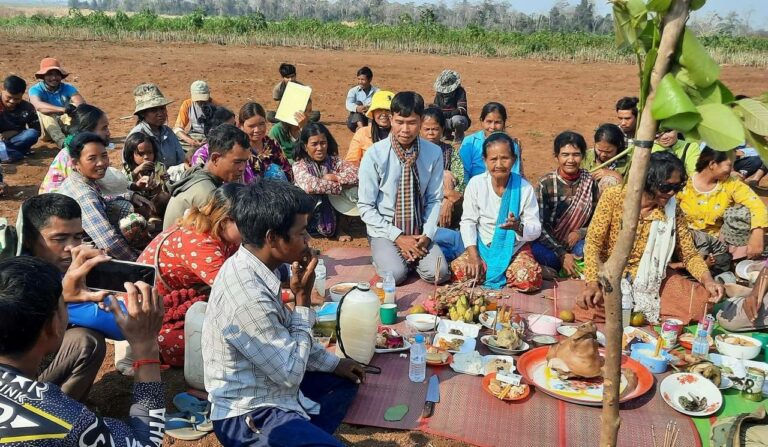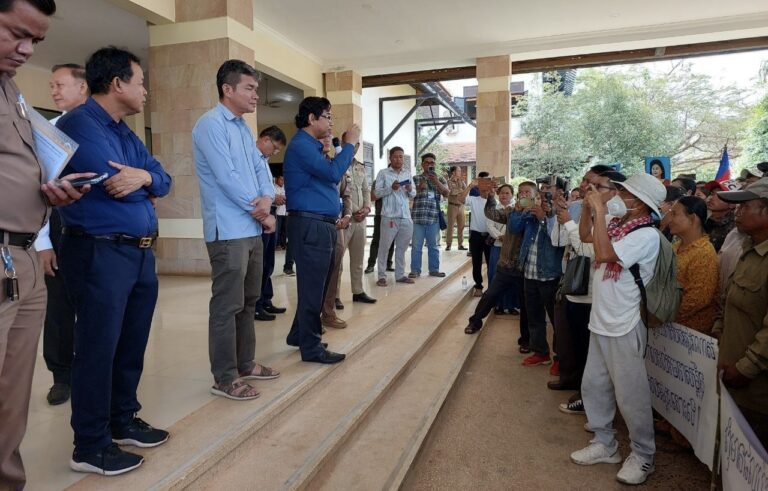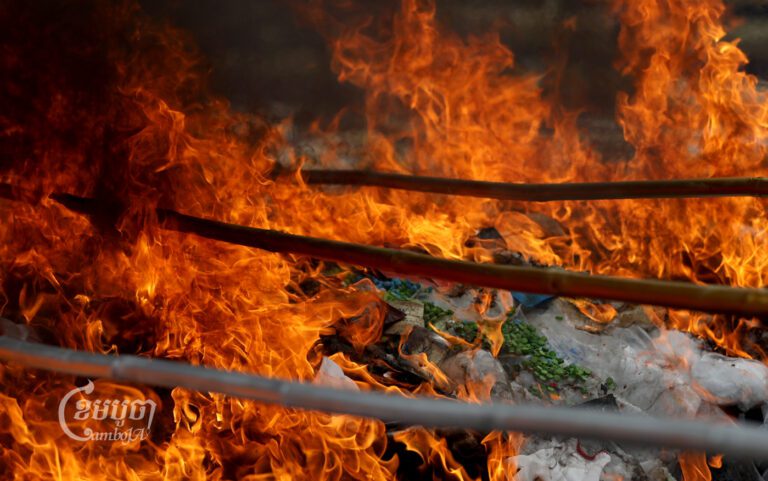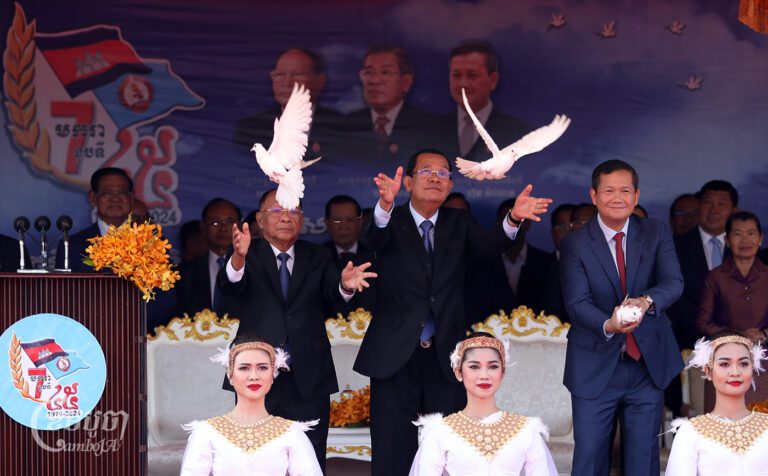After 16 years of proceedings, the U.N.-backed Khmer Rouge tribunal on Thursday announced its final verdict against a senior leader of Pol Pot’s regime, upholding genocide and other criminal convictions against Khieu Samphan, the last living regime leader sentenced by the court.
The verdict from the Supreme Court Chamber of the Extraordinary Chambers in the Courts of Cambodia, known as the Khmer Rouge tribunal, concludes the last pending case against a senior leader of the ultra-communist regime, under which some 1.7 million people died from starvation, torture, execution and forced labor from 1975 to 1979.
The end of the proceedings on Thursday “closed a dark chapter for our Cambodian people and all of humanity who have been long waiting for justice,” deputy prime minister Bin Chhin told reporters outside the court.
Samphan, 91, is one of only two senior cadre to be found guilty for genocide during Democratic Kampuchea rule. Arrested in 2007, he is also one of only three senior Khmer Rouge leaders sentenced by the hybrid Cambodian-U.N. court, which was established 20 years ago and has cost nearly $400 million, with the majority of funding coming from international donors.
Following Thursday’s verdict, the tribunal is expected to complete its caseload by the end of this year. Next year, it will begin a residual phase aimed at preserving the court’s legacy and providing public access to its historical records of the crimes committed under the Khmer Rouge, according to a U.N. and government statement released Wednesday.
Since 2006, the tribunal has heard evidence from more than 10,300 victims of the regime, rendered more than 1,345 decisions and contributed some 3 million pages to Cambodia’s judicial and historical records, the statement said.
Sok Sam Oeun, a human rights lawyer and former executive director of the Cambodian Defenders Project, which provided legal support to Khmer Rouge victims participating in tribunal prosecutions, said it was time to end proceedings as top Khmer Rouge leaders had been convicted and it was not feasible to sentence all regime cadres.
“I think it should be enough. We don’t need to continue other cases because it wastes time and money,” he said. “If we want to bring full justice for all, we must bring all the Khmer Rouge to be sentenced, but I think we cannot. For the sake of Cambodia’s peace, we have decided to bring only the top leaders to justice.”
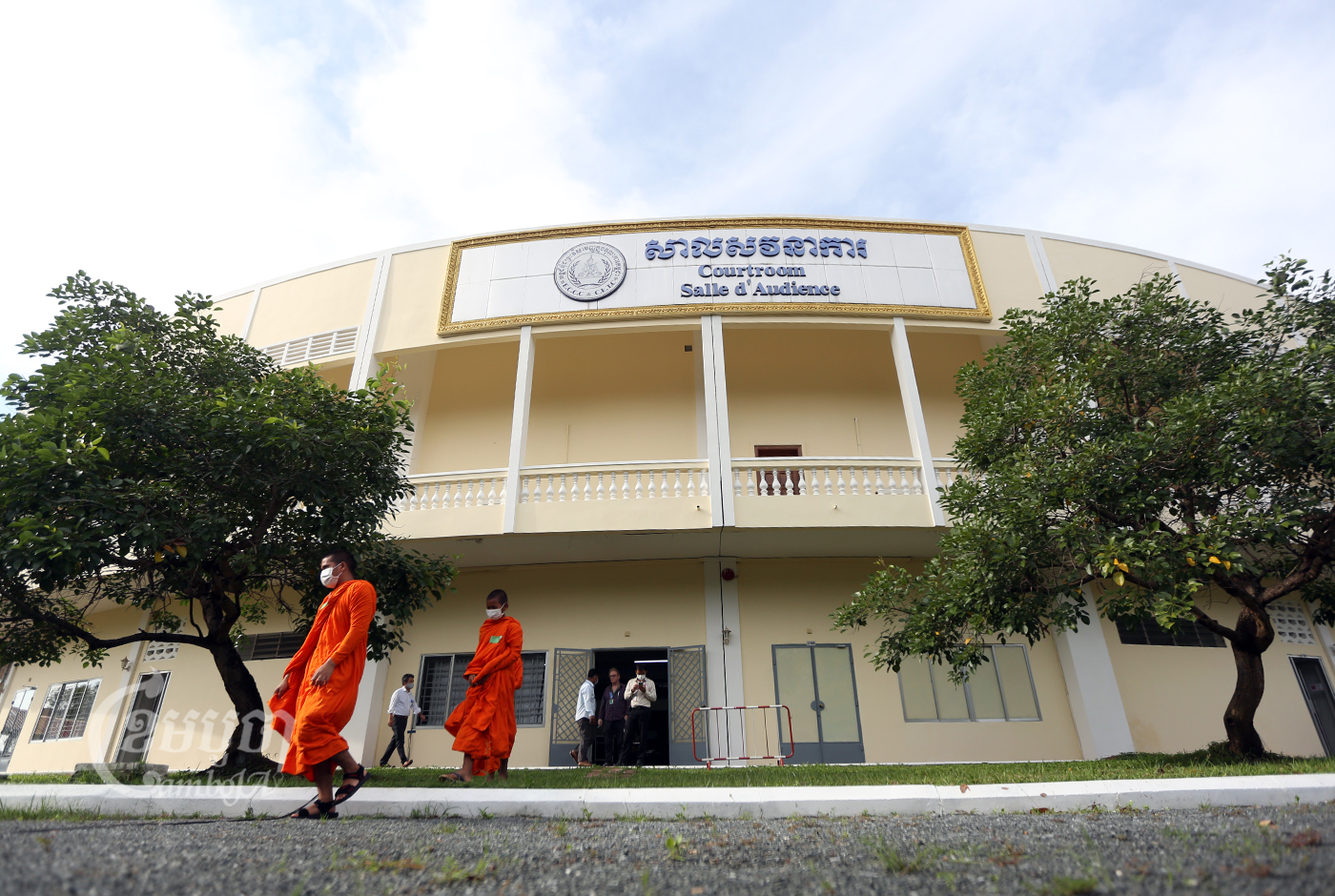
Samphan, the regime head of state, and Nuon Chea, deputy communist party secretary, were found guilty in 2018 of genocide against ethnic Vietnamese in Cambodia, crimes against humanity and breaches of the 1949 Geneva Conventions. Chea was also convicted for genocide against minority Cham Muslims. They were already serving life prison sentences following convictions for crimes against humanity in 2014. Chea died in 2019.
Both men were found guilty of various crimes against humanity, including murder, torture, imprisonment and forced marriage and rape in the the context of forced marriage, in which cadres compelled people to marry and have sexual intercourse against their will.
After the 2018 genocide convictions, Interior Minister Sar Kheng said there would be no more additional prosecutions by the tribunal.
Prime Minister Hun Sen, himself a former Khmer Rouge commander who defected, has repeatedly said no more cases would go forward, claiming more prosecutions would cause instability in the country.
In 2010, Hun Sen said he would not allow prosecutions at the tribunal beyond its second case, which tried Samphan and Chea. The premier’s statement was criticized at the time as blatant political interference in the court’s work, the Phnom Penh Post reported.
Despite the tribunal’s “well-documented flaws,” it has shown that perpetrators “can and will be held responsible,” said Ming Yu Hah, Amnesty International’s deputy regional director for campaigns.
“Today’s ruling should serve as another reminder that accountability for the most serious crimes has no expiration date,” she said in a statement.
The tribunal has also served as a platform for public discussions of the Khmer Rouge’s crimes and a venue for victims’ voices to be heard, recorded and publicized, she added.
Norng Chan Phal, a survivor of the S-21 detention center, where thousands of regime prisoners were detained, the vast majority of whom were tortured and killed, said that while he applauded the court’s achievements, he wanted to see more Khmer Rouge leaders brought to justice.
“When Duch confessed that he committed the crimes, I felt it was fair for the victims. It is acceptable for me as it could fade out some of my bad memories,” he said, referring to convicted S-21 prison chief Kaing Guek Eav, who died in 2020.
“But for other leaders behind the genocide, they still conceal the truth while there are still other Khmer Rouge leaders not brought to trial, some of whom are now in power,” he added, referring to ex-Khmer Rouge cadres now in government positions.
Still, Chan Phal said the tribunal has at least brought closure for some victims and helped to reconcile the nation.
“We do not want to see this regime return. We want real democracy. We do not need a dictatorship,” he said. “It will be a memory for the next generation and a lesson learned for the next generation of leaders.”


